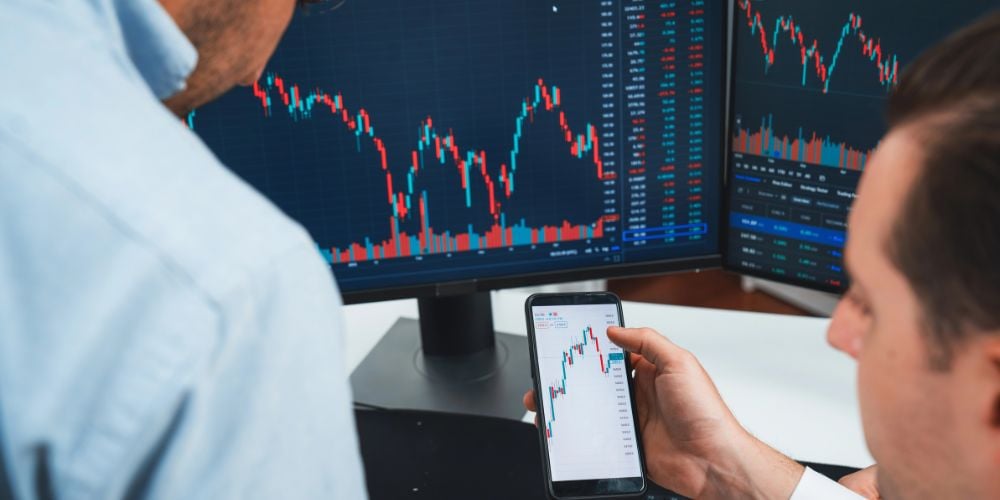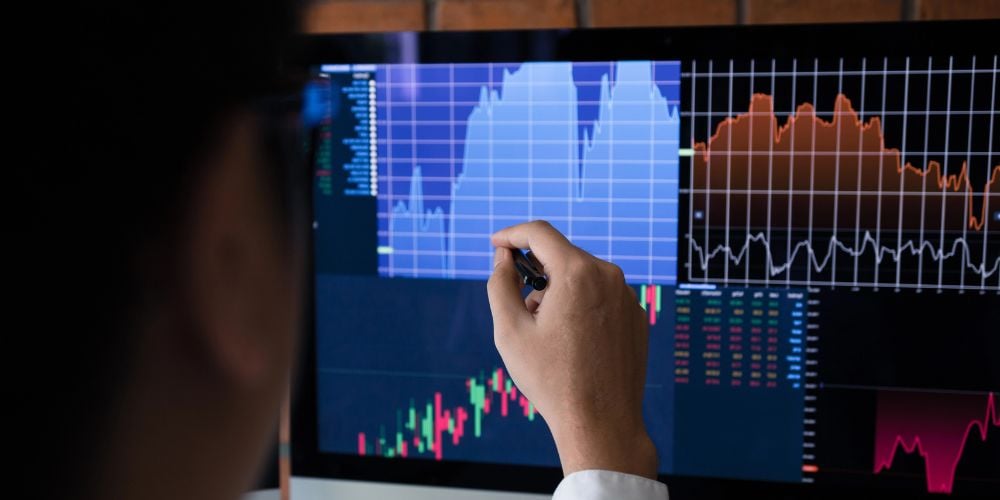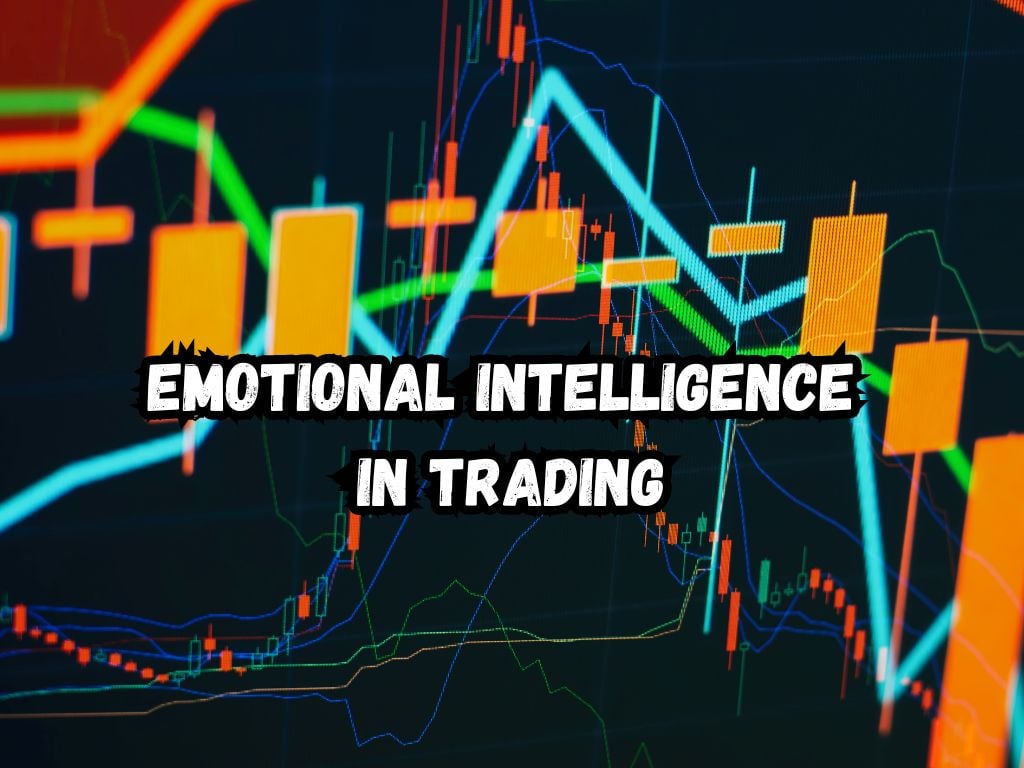In the fast-paced world of trading, where split-second decisions can lead to significant gains or losses, the role of emotional intelligence (EI) often goes unrecognized. Yet this unseen force can be the defining factor between sustained success and repeated failure.
This article aims to shed light on the crucial impact of emotional intelligence in trading, unpacking how it influences decision-making and behavior in the market.
What is Emotional Intelligence?
Emotional Intelligence, a term popularized by psychologist Daniel Goleman, refers to the ability to understand and manage your emotions, as well as the emotions of others.
It encompasses five critical components: self-awareness, self-regulation, motivation, empathy, and social skills. These elements play a vital role in trading, affecting everything from risk management to decision-making under pressure.

Emotional Intelligence in Trading
Trading is not just a game of numbers and charts; it’s profoundly psychological. Emotions like fear, greed, hope, and regret can cloud judgment, leading traders to make irrational decisions.
Recognizing and controlling these emotional responses is crucial for maintaining objectivity and discipline in trading.
Benefits of High Emotional Intelligence in Trading
Traders with high EI enjoy several advantages. They make better decisions by staying focused and avoiding emotional pitfalls. They manage stress more effectively, allowing them to think clearly under pressure.
High EI traders also maintain discipline, adhering to their trading plans regardless of emotional temptations. Lastly, they possess resilience, enabling them to recover from losses without letting emotions derail their strategies.
Developing Emotional Intelligence for Trading
Improving emotional intelligence involves enhancing each of its core components.
Self-Awareness involves recognizing your emotional states and understanding how they affect your decisions. Keeping a trading journal can be invaluable here, providing insight into emotional triggers and patterns that influence your trading.
Self-Regulation is about controlling your emotional reactions. This includes following a well-thought-out trading plan and setting strict risk management rules to prevent impulsive decisions driven by emotions.
Motivation in trading means staying focused on long-term goals, driven by a clear understanding of what you want to achieve. Regularly reviewing these goals can keep you motivated, even when faced with setbacks.
Empathy allows traders to better understand the market’s mood by considering the perspectives of other market participants. Engaging with a trading community can deepen this understanding, offering diverse viewpoints and insights.
Social Skills are critical for learning from and sharing knowledge with other traders. Active participation in forums or trading groups can enhance your trading strategy and broaden your market perspective.
Emotional Intelligence for Risk Management
Applying emotional intelligence in risk management involves making balanced decisions based on a clear understanding of both the rewards and the potential emotional pitfalls.
This clarity can significantly reduce risky bets made on the spur of the moment, leading to more consistent outcomes.
Emotional Intelligence Tools and Techniques for Traders
Mindfulness and meditation are effective for managing stress and improving focus. Cognitive Behavioral Techniques can help in identifying and changing thought patterns that lead to emotional distress.
Various apps and software also offer resources designed to aid emotional regulation in trading.

Challenges in Applying Emotional Intelligence to Trading
Despite its benefits, integrating EI into trading is not without challenges. It requires ongoing effort and practice to develop these skills.
However, with persistence and a commitment to self-improvement, traders can enhance their emotional intelligence, leading to better trading performance.
Frequently Asked Questions
Can emotional intelligence be more important than technical knowledge in trading?
While technical knowledge is crucial, emotional intelligence can be equally important, as it affects decision-making and risk management.
How can I measure my emotional intelligence level as a trader?
Self-assessment tools and reflections through journaling can provide insights into your EI levels.
Are there specific EI training programs for traders?
Yes, there are programs focused on developing emotional intelligence specifically tailored for traders, encompassing stress management, decision-making, and risk management techniques.
How does emotional intelligence help with trading under high-stress situations?
High EI enables traders to manage stress effectively, maintain focus, and make clear, objective decisions even in volatile markets.
Can improving my emotional intelligence actually lead to better trading profits?
While EI alone doesn’t guarantee profits, it can significantly improve decision-making, discipline, and resilience, all of which are critical for successful trading.
In conclusion, emotional intelligence serves as a cornerstone for effective trading, providing the mental clarity and discipline required to navigate the complexities of the market.
As such, cultivating EI is not just beneficial but essential for anyone looking to achieve and sustain success in trading.
Conclusion
Emotional Intelligence plays a vital role in trading, impacting every facet from decision-making to risk management. While often overlooked, its importance cannot be overstated.
By developing and applying EI in trading, individuals can enhance their performance, manage stress more effectively, and achieve long-term success in the markets.


 Tags:
Tags:










